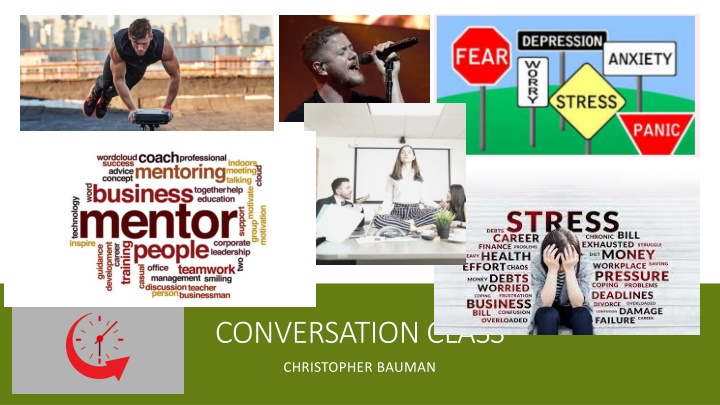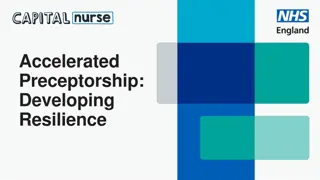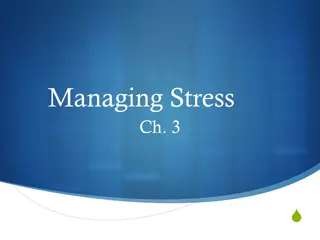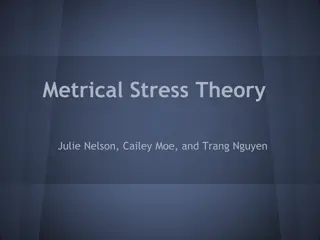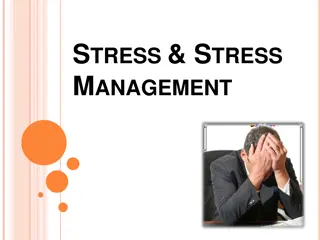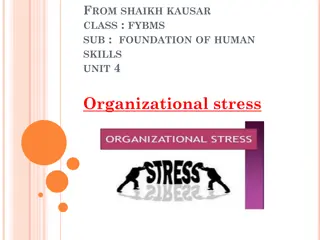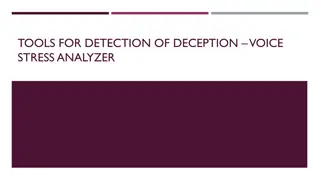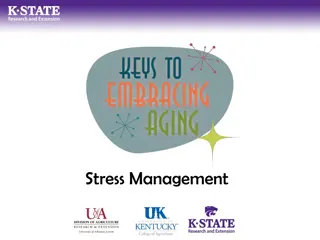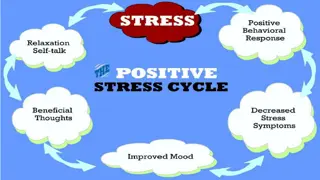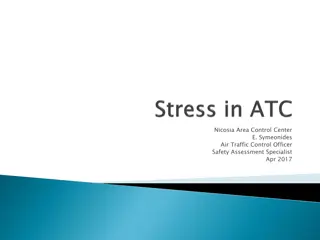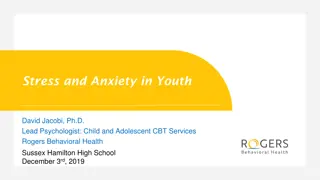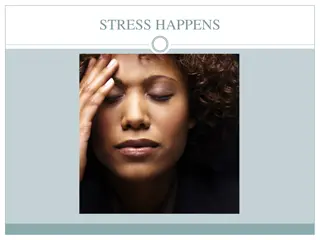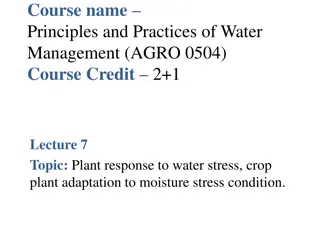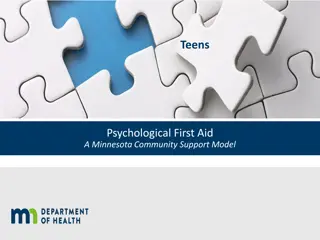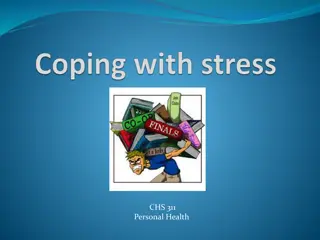Stress Management Tips for a Balanced Life
Embrace the things you can't control, strive for your best without seeking perfection, maintain a positive outlook, identify stress triggers, limit alcohol and caffeine intake, prioritize balanced meals, ensure sufficient sleep, engage in regular physical activity, practice deep breathing, give back to the community, take breaks when needed, and seek support when overwhelmed. These proactive steps can help you navigate stress and anxiety effectively, promoting mental wellness and resilience.
Download Presentation

Please find below an Image/Link to download the presentation.
The content on the website is provided AS IS for your information and personal use only. It may not be sold, licensed, or shared on other websites without obtaining consent from the author.If you encounter any issues during the download, it is possible that the publisher has removed the file from their server.
You are allowed to download the files provided on this website for personal or commercial use, subject to the condition that they are used lawfully. All files are the property of their respective owners.
The content on the website is provided AS IS for your information and personal use only. It may not be sold, licensed, or shared on other websites without obtaining consent from the author.
E N D
Presentation Transcript
CONVERSATION CLASS CHRISTOPHER BAUMAN
1. Accept that you cannot control everything in your life. When you accept that some things are out of your control, including the people around you and the decisions they choose to make, you can start putting your stress into perspective. Try acknowledging that something is out of your control and release it, you can do this by writing it down or in your mind. 2. Do your best Aiming for perfection can be extremely stressful, as we are humans and innately imperfect. Take a step back and acknowledge that you ve done the best you could in the situation or project. 3. Try to keep a positive outlook When you are deep in anxiety or stress, it can be hard to see the positive aspects of a situation, however when you take moment to think of the things you are doing well, no matter how small, it can make a big difference. Offering gratitude to a situation or something in your life can help ease your mind. 4. Learn what triggers your stress or anxiety Is it a particular person, job, school or something else you can identify that is the source of your anxiety or stress? You can identify a pattern by journaling or writing down the situation when you feel this way. Teachers Education Skills Chris Bauman
5. Limit alcohol and caffeine Alcohol and caffeine can aggravate anxiety and trigger panic attacks, even if it helps in the short term. Drink water instead. 6. Eat well-balanced meals While you may not feel like eating in the midst of anxiety and stress, it is important to keep eating, even if they are very small meals. Eating healthy, energy-boosting snacks, such as nuts or herbal tea can help keep your body in good health to avoid illness. 7. Get enough sleep When you are stressed, your body needs additional sleep and rest. It can be hard to get to sleep and stay asleep when your mind is racing. Try and utilize practices such as journaling to get your thoughts on paper or simple meditation to help with breathing into sleep. 8. Move your body daily Moving your body is so important when you are feeling stressed or anxious. The word exercise can be overwhelming, so think of it as whatever you do to move your body. This could be taking a walk on your lunch break or after dinner, dancing to your favorite song or doing simple yoga to stretch your body.
9. Take deep breaths Taking deep, slow breaths can significantly help when you are feeling stressed. Use this exercise below: 10. Give back to the community Volunteering and performing acts of kindness increases your mental wellness. It can also create community and gives you a break from everyday stress. 11. Take time off Sometimes the only way to reduce stress and anxiety is to take time for yourself. Doing yoga, listening to music or taking a mental health day can help you step back from your situation and analyze it with a clearer mind. 12. Get help Whether you get help online, reach out to a friend or family member, or find a therapist, it is helpful to talk to someone about what you are feeling. There is nothing to be ashamed of for feeling overwhelmed or anxious. Therapy is a great way to receive objective and non-judgmental help.
